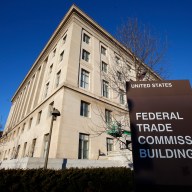TAMPA, Fla. – Republican presidential contenders Mitt Romney and Newt Gingrich clashed repeatedly in heated, personal terms in a debate ahead of Florida’s pivotal primary in what has turned into an increasingly contentious race to pick a challenger to President Barack Obama.
Romney, the former Massachusetts governor, tagged his chief rival as an “influence peddler” in Washington, only to be accused in turn by Gingrich, the former speaker of the House of Representatives, of spreading falsehoods over many years in politics during a two-hour debate Monday night that was marked by interruptions and finger pointing.
Gingrich has suddenly seized the nomination momentum, following weak finishes in the first two contests in Iowa and New Hampshire, with his solid 12-percentage point victory Saturday over Romney in South Carolina. Recent polls suggest he may have erased Romney’s once double-digit lead in Florida, site of the next primary on Jan. 31.
Romney remains the favourite of much of the Republican establishment and has a big advantage in money and organization. But his South Carolina win has allowed Gingrich to position himself as the only viable conservative alternative to Romney, whom some Republicans see as too moderate for past positions supporting abortion and gay rights.
The debate came one night before Obama’s nationally televised State of the Union policy speech to Congress offering him his biggest, best chance to offer a vision for a second term in a year dominated by Republican infighting.
Obama will speak to a nation worried about daily struggles and unhappy with his handling of the economy. The president is expected to urge higher taxes on the wealthy, propose ways to make college more affordable and offer new steps to tackle a deblitating housing crisis and try to help U.S. manufacturers expand hiring.
With a week of campaigning ahead in Florida, Romney, a multimillionaire who formerly headed a private equity firm, sought to deal with an issue that plagued him in the run up to the South Carolina primary by releasing his federal income tax return for 2010.
The fight over releasing the tax information highlighted an argument that Democrats are already starting to use against Romney — that he is out-of-touch with normal Americans.
Romney predicted during the debate that his 2010 tax returns and an early report on his taxes for last year will generate chatter but not any surprises.
“You’ll see my income, how much taxes I’ve paid, how much I’ve paid to charity,” he said on the debate stage Monday night. “Will it be an article? Yeah. But is it entirely legal and fair? Absolutely. I’m proud of the fact that I pay a lot of taxes.”
Romney earned $21.7 million income in 2010, most of it from his investments, according to records his campaign released within hours of the debate’s conclusion. He donated a combined $3 million to charitable causes and the Mormon Church and paid about $3 million in federal income taxes for an effective tax rate of about 14 per cent, the records showed. That rate is far lower than standard rates for high-income earners whose income is derived from their wages rather than investment earnings.
For 2011, he’ll pay about $3.2 million with an effective tax rate of about 15.4 per cent, the campaign said.
Only a week ago, Romney seemed poised to put an early end to the nomination race. Polls showed him leading in South Carolina, but Gingrich surged after strong performances in two debates in which he lashed out at liberal “elites.”
Now, Florida is a state Romney can ill afford to lose in a nomination battle that is likely to stretch out for months. Romney was the aggressor from the opening moments of the debate Monday night, saying Gingrich had “resigned in disgrace” from Congress after four years as speaker and then had spent the next 15 years “working as an influence peddler.”
Gingrich faced harsh questions about his own financial dealings, . While comfortable as the aggressor in previous encounters with Romney and their rivals, he found himself battered by Romney’s criticism as the pair clashed repeatedly,
“You’ve been walking around the state saying things that are untrue,” Gingrich told Romney.
In particular, Romney referred to the contract Gingrich’s consulting firm had with Freddie Mac, a government-backed mortgage giant that the former Massachusetts governor said “did a lot of bad for a lot of people and you were working there.”
Romney also said Gingrich had lobbied lawmakers to approve legislation creating a new prescription drug benefit under Medicare, the government program which provides health care coverage to the elderly.
“I have never, ever gone and done any lobbying,” Gingrich retorted emphatically, adding that his firm had hired an expert to explain to employees “the bright line between what you can do as a citizen and what you do as a lobbyist.”
Romney counterpunched, referring to the $300,000 that Gingrich’s consulting firm received in 2006 from Freddie Mac.
And when Gingrich sought to turn the tables by inquiring about the private equity firm that Romney founded, the former Massachusetts governor replied: “We didn’t do any work with the government. … I wasn’t a lobbyist.”
Two hours before the debate, Gingrich tried to defuse the issue of his work for the mortgage lender by arranging the release of a contract his former consulting firm had with the Federal Home Loan Mortgage Corp., or Freddie Mac, for a retainer of $25,000 per month in 2006, or a total for the year of $300,000. The agreement called for “consulting and related services.”
Despite Romney’s attempts to call Gingrich a lobbyist, the contract makes no mention of lobbying.
Romney will briefly turn his attention Tuesday morning to Obama, offering a “pre-buttal” to the president’s State of the Union address before shifting to Gingrich’s work for the federal mortgage giants at a campaign event focused on Florida’s housing problems.
Gingrich has a busy day on the campaign trail planned as well, with rallies set for St. Petersburg, Sarasota and Naples.
Texas Rep. Ron Paul, who’s bypassing Florida in favour of smaller, less-expensive states with caucuses next month, returned to his home in Texas after Monday’s debate. But former Pennsylvania Sen. Rick Santorum will appeal to the tea party which advocates smaller government and lower taxes to help revive his candidacy, appearing at two tea party events.
Santorum and Paul were reduced to supporting roles Monday night. Santorum jumped at the chance to criticize both Romney and Gingrich for having supported the big federal bailouts of Wall Street in 2008.
The libertarian-leaning Paul, who advocates limited government and a non-interventionst foreign policy, sidestepped when moderator Brian Williams of NBC asked if he would run as a third-party candidate in the fall if he doesn’t win the nomination. “I have no intention,” he said, but he didn’t rule it out.
____
Associated Press writer Steve Peoples in Tampa, Florida, contributed to this report.
















